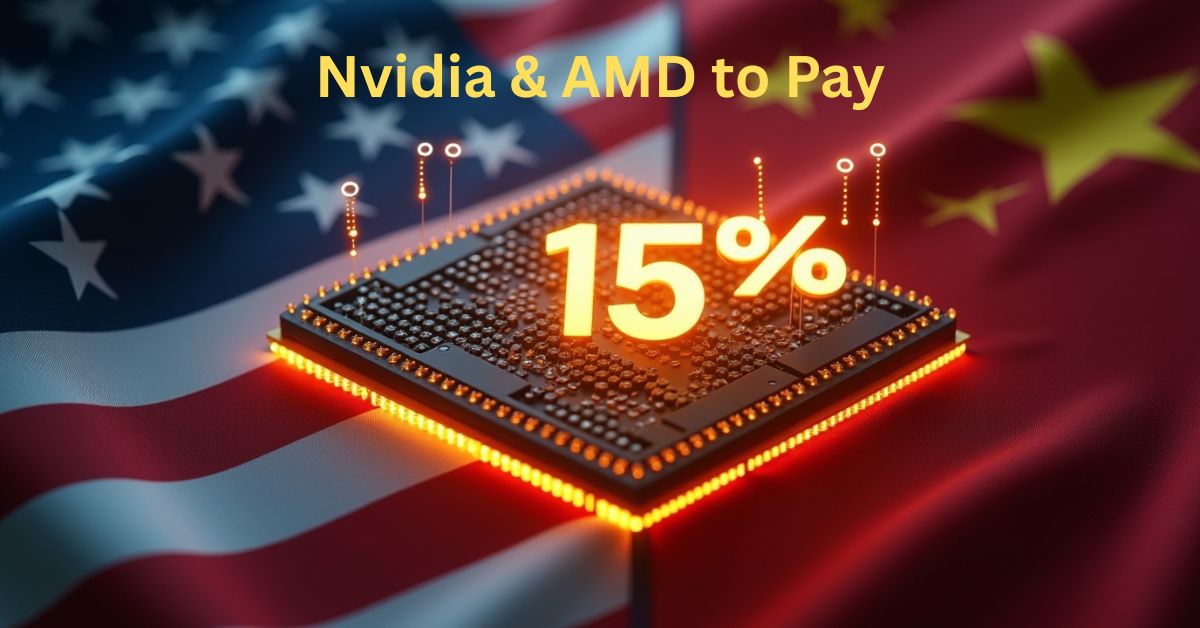In a move that could redefine the intersection of commerce and foreign policy, Nvidia and AMD have agreed to pay 15% of their AI chip revenues from China directly to the U.S. Treasury. This payment is part of a deal granting them export licenses for advanced AI processors, a category of hardware that has been at the center of U.S.-China technology tensions.
While the arrangement unlocks billions in potential sales for both companies, it also sets an unprecedented precedent in U.S. trade enforcement, blending national security considerations with direct revenue-sharing from private corporations.
The deal reportedly followed a high-level meeting between Nvidia CEO Jensen Huang and U.S. President Donald Trump. Shortly after, export permits were issued, allowing Nvidia to ship its H20 AI chips and AMD to export its MI308 processors to Chinese customers despite ongoing restrictions under U.S. export control laws.
Both companies emphasized their compliance with all applicable regulations, framing the payments as part of a lawful licensing structure rather than a punitive measure.
The Financial Stakes:
The numbers behind this deal are substantial:
- Nvidia’s China Market Potential (2025): Analysts project $20–$23 billion in sales from H20 chips alone.
- AMD’s China Market Potential: Estimated in the multi-billion-dollar range for its MI308 AI accelerators.
- U.S. Government Share: 15% of this combined revenue could translate into several billion dollars in annual federal receipts.



